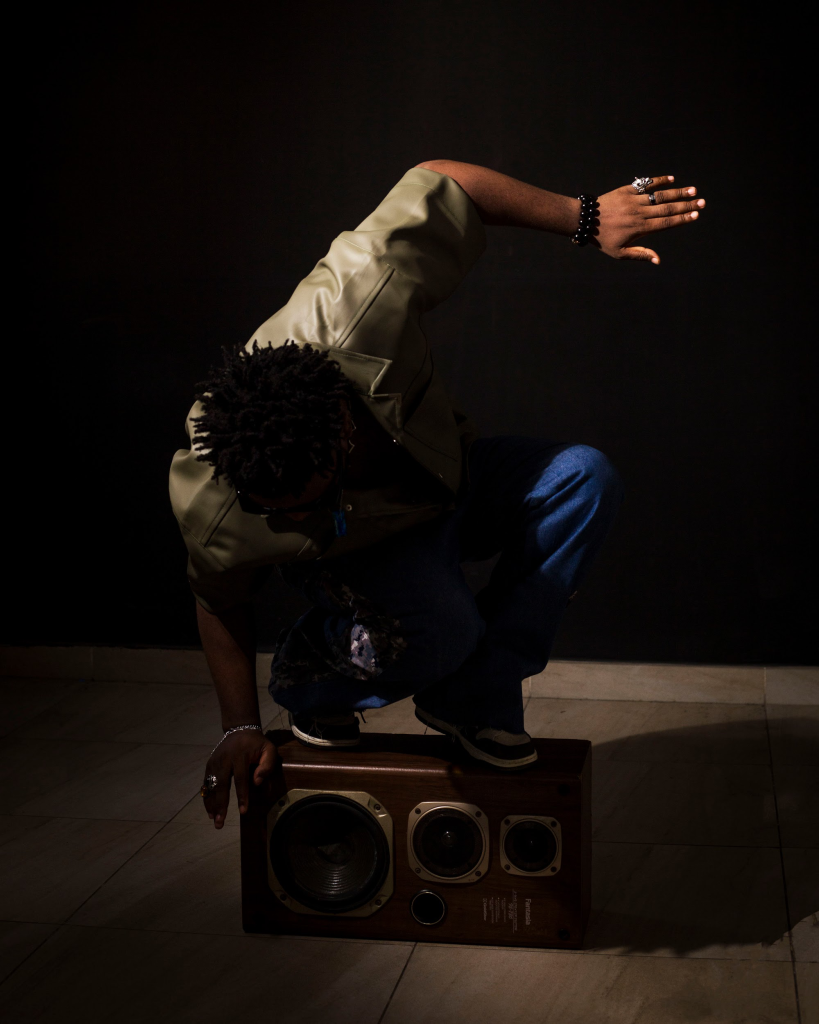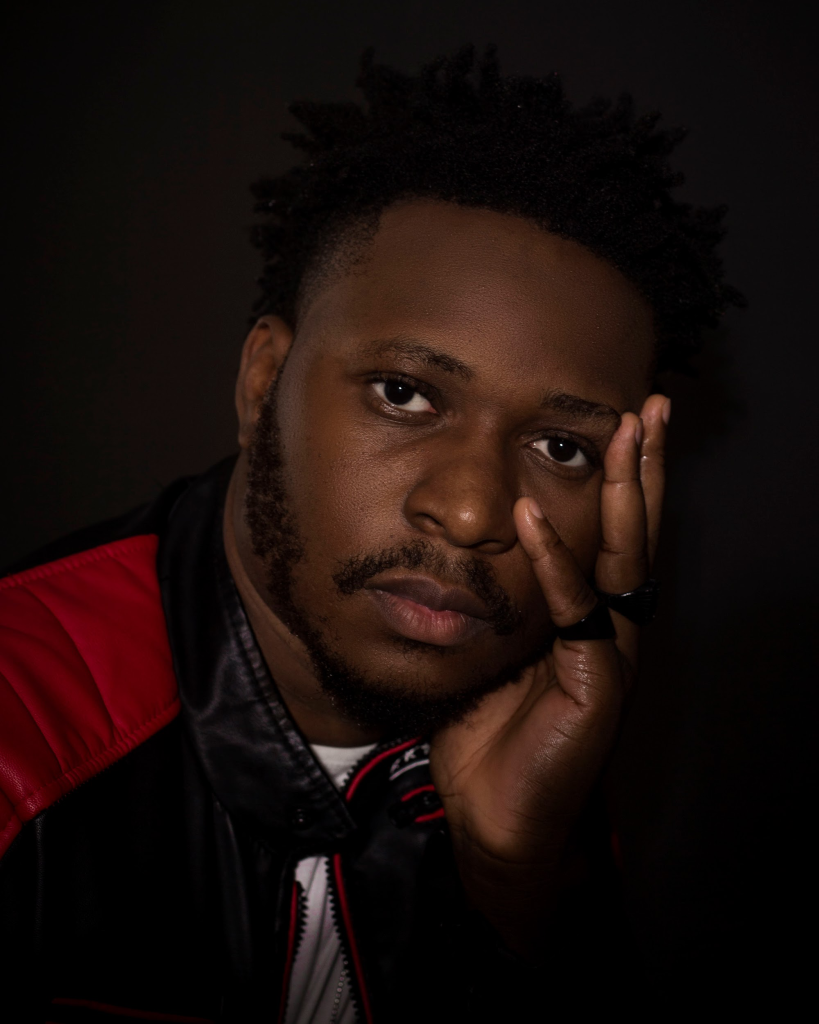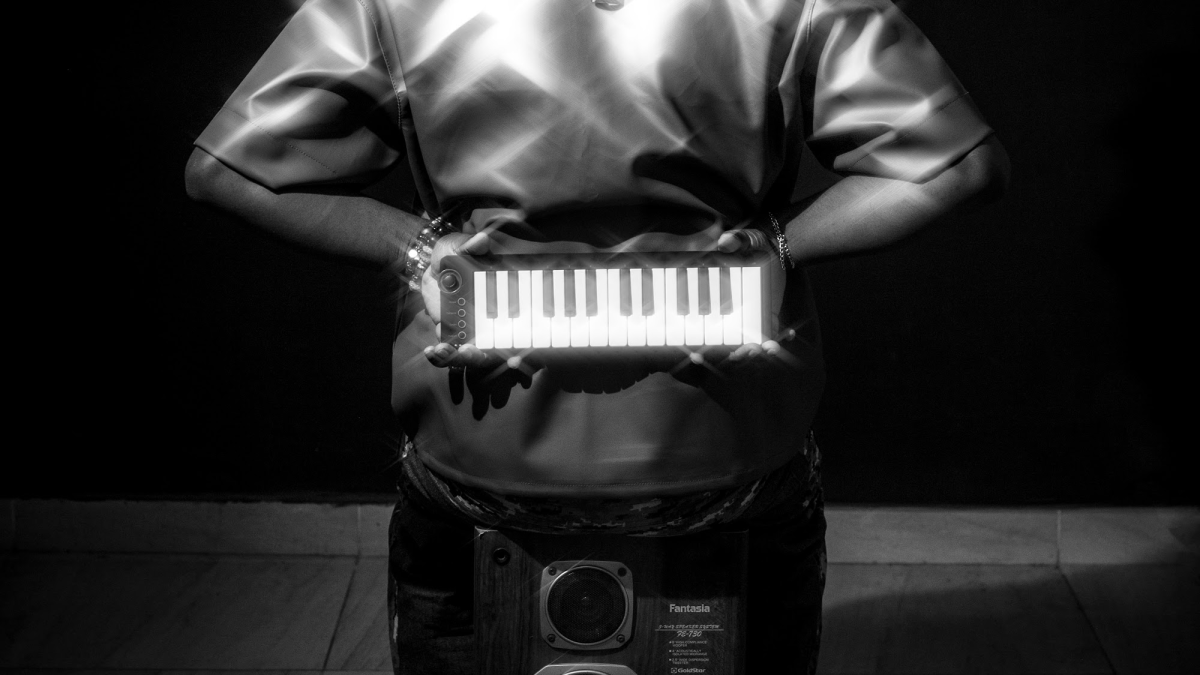By Onyeche Elvis
There’s a different kind of magic that happens when creativity meets chaos, and for award-winning Nigerian producer Chukwudi “Juice”. Charles, that magic is a lifestyle.
Producing music in a fully equipped studio is one thing. Producing music in airport lounges, hotel rooms, and even a friend’s kitchen while running on two hours of sleep and a tour schedule? That’s a different kind of commitment. In this exclusive sit-down, Juice opens up about the hustle behind the highlights, sharing what it truly takes to make music while on tour and why the road hasn’t just tested his creativity, but sharpened it
1. How were you able to still create music while moving from city to city on tour?
Juice: “Truthfully, it wasn’t convenient. But I had a job to do, and there’s no way I can make a commitment and not come through. It’s not even in my DNA to do that. Once I make a commitment, it doesn’t matter where I am; I must come through.”
There’s a raw honesty in his response. For Juice, touring wasn’t just about sold-out shows and applause; it came with long flights, tight schedules, and very little downtime. Still, the music couldn’t wait. He describes producing as a duty, something you don’t negotiate with. If an artist needed a beat, he’d find a way. Sleep or no sleep.
2. What gear do you always carry when you know you’ll be producing on the road?
Juice: “I invested in mobile, record-ready gear, compact but powerful. I knew early on that spontaneity would be part of the job. So I basically just invested in efficient, travel-friendly tools that could deliver industry-grade sound on the go.“
3. Was there ever a time you had to produce music in a random or uncomfortable place?
Juice: “Yeah… in my friend’s kitchen. I was in Atlanta at the time, and Falz was just kicking off his Europe tour, so I had to
work on his already existing songs for his live performance on tour.“
That kitchen story says a lot. Sometimes the least glamorous setups produce the most iconic results.
Juice was across the world in Atlanta, bouncing files and building out sound while his artist was thousands of miles away prepping for a tour. That’s the kind of behind-the-scenes hustle fans never see.

4. How does touring affect your creative flow? Does it boost it or slow it down?
Juice: “It’s a mix. Because the concept of travelling is basically designed to wear you down, but in that mix, it also inspires me. Sometimes I find myself playing random pianos at airport lobbies just to keep my creativity alive.”
Juice admits that the logistics of touring, flights, delays, and long nights can be mentally draining. But traveling also feeds his spirit. He finds moments of unexpected creativity, like playing pianos at airport terminals or sampling street sounds in new cities. It’s a perfect blend between exhaustion and excitement, and somehow, it works.
5. Were there times you were too tired to create, but you had to push through?
Juice: “At that point, it’s not even about creativity anymore; it’s about work ethic. As long as I’m not sick, I’m showing up. For me, showing up tired, uninspired, or jetlagged is non-negotiable. I have to show up.”
Juice’s work ethic fuels him when the inspiration isn’t flowing. It’s a business, after all. The music has to be made, deadlines met, and artists satisfied. That discipline is what separates producers from professionals.
6. How do you draw inspiration when you’re constantly in motion and under pressure?
Juice: “I barely get under pressure because I’m big on collaboration. I have a team of amazing producers, so whenever there’s a task that’s going to require a lot, and I have a full desk, I delegate to the other guys on my team. These guys are already amazing producers, so I trust their work, and I don’t need to micromanage.”

Juice credits his support system. He doesn’t try to do it all alone. By building a solid team of collaborators, engineers, co-producers, and sound designers, he creates an environment where the pressure doesn’t rest solely on his shoulders. That freedom allows his creativity to breathe, even under the weight of back-to-back commitments.
7. What’s the hardest part about producing music while on the move?
Juice: “Finding space. Finding the perfect space to relax and make music is really a struggle while you’re on the road. There are lots of people around, there’s noise, and there’s one thing or the other happening every time. I’ve even made beats in airport lounges before, and one thing you should know is public interference is real.”
Lack of privacy is a recurring challenge. Juice has worked in noisy spaces, crowded lounges, and hotel lobbies, environments far from ideal for focused sound creation. Still, he makes it work. Headphones on, world off. That’s how he zones in.

8. What’s one tour moment that directly inspired a sound or sample you used?
Juice: “So there’s an event called the South by Southwest (SXSW) Music Festival. It is a major annual event held every March in Austin, Texas, that brings together musicians, industry professionals, and fans from all over the world. At South by Southwest in Austin, I heard music from all over the world for one week straight because it’s an event that runs for a whole week. It was like sonic overload. I got to experience sounds from different parts of the world, sounds I had never heard before. I was really inspired, and I knew I couldn’t leave without recording something.”
That week in Austin was pivotal. Juice soaked in the diversity of Afro-fusion in one corner, indie synths in another. He left with more than just memories; he left with melodies that found their way into later projects.
9. Is there a difference between the music you make in the studio vs. on the road?
Juice: “Not really. I’ve mastered my workflow. I might start in the studio and finish on the road or vice versa. So it doesn’t really matter where I am; that MASTERPIECE must be made.”
For Juice, music creation isn’t bound by space. His process is fluid. He starts where he can, refines when possible, and finishes wherever the road takes him. That kind of flexibility only comes from years of honing his workflow.

10. For upcoming Nigerian producers, what’s one real piece of advice you’d give about making music on the go?
“Document your thoughts. No one can think like you. If you don’t capture your ideas, you’ll lose them. Whenever you are creating anything, and I mean anything at all, please document that process because you don’t know the magic that might happen. Even if you feel like you don’t need those ideas for what you are currently working on, just have them documented somewhere so you can always have an archive to refer back to when you’re low on inspiration. Trust me, you’ll thank yourself.”
Juice emphasises memory. Not just the music, but the mindset behind it. Some of the best ideas come unannounced in traffic, at an airport, or during a soundcheck.
His advice is simple but powerful: write it down, record it, save it. Don’t trust your brain to remember genius.
Juice isn’t just a hitmaker; he’s a master of process. He’s built a system that allows him to thrive even in chaos, producing quality work in far-from-perfect conditions.
And he’s doing it not just for himself but as a blueprint for the next generation of Nigerian producers.
Related posts
Subscribe
* You will receive the latest news and updates on your favorite celebrities!


